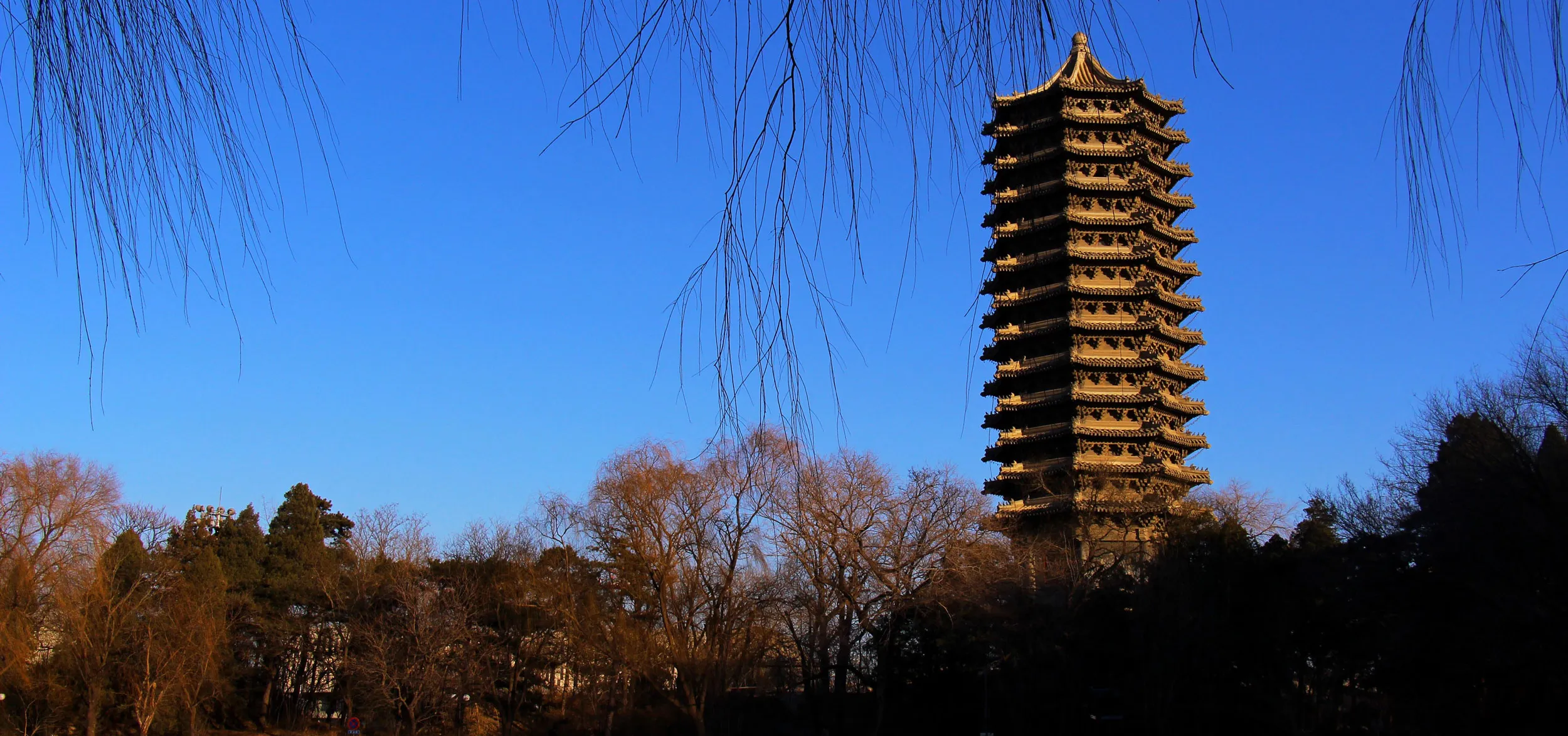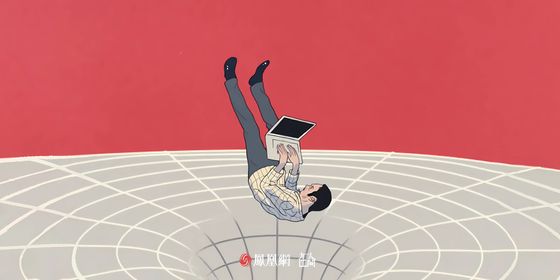Why are supernatural tales so prevalent on Chinese campuses?
It was summer of 1980, Peking University (PKU). Chen Mu, a third-year student at the university’s renowned Chinese literature department, was taking no interest in the Western philosophy and literature that were taking Chinese academia by storm during the early years of the reform period.
In Chen’s eyes, this life was artificial, a shadow of a bygone age of literary grandeur; she wanted out. She had tried slitting her wrists several time, but every attempt had been too shallow to be life-ending. So Chen sought a method with no possible escape—and that was when she decided to drown herself in the university’s most famous landmark, the Nameless Lake (未名湖).
On a chilly spring morning, Chen stood by the lake’s bank, drawing deep breaths, readying herself to take the plunge. Hesitation started to creep in, but then her ears caught the sound of a bamboo flute playing a mellow lullaby; something in her heart stirred, and she jumped, never to be seen again. In the years since, scores of students have reported catching a glimpse of a girl from the corner of their eye, each time while they played a flute by the lake.
It’s one of the more memorable episodes from Fruit Under the Red Flag, a 2009 novel written by balinghou novelist Shi Yi Feng, a PKU graduate.
Chinese university campuses have long had disturbing or paranormal tales attached to their landmarks by curious and imaginative students. For many young adults, university is the first time they leave behind their overbearing parents, enjoying a lighter workload than the grueling gaokao years, as well as an unprecedented number of friends and student societies. Rumors—often brushing against taboo topics like sex, political activism, and, most commonly, death—often circulate at lightning speed.
The myth that novelist Lao She ended his life by drowning in the Nameless Lake is well known to PKU alumni. The lake had been the favorite drowning spot of intellectuals humiliated by Red Guards during the peak of the Cultural Revolution. However, unlike many other intellectuals of his generation, the Beijing-born writer was not a PKU graduate; Lao She instead chose the Summer Palace’s Taiping Lake for his watery grave.
An even wilder rumor claimed that the Nameless Lake had been a dumping ground for thousands of dead experimental subjects for a secret Japanese wartime biological experimentation facility. The story was seemingly so prevalent that, in 2004, PKU’s Faculty of Natural Resources and Environment published a paper explaining the lake was less than two meters deep—hardly a suitable graveyard for so many bodies.
Other stories, perhaps even less credible, are more revealing of ideological beliefs on campus. Take the fictional flute that pushed Chen Mu over the edge in Shi Yi Feng’s novel, for example: A new version claims a construction worker was buried alive some years ago by his co-workers, after getting beaten to a pulp in a scuffle over some cigarettes. The worker died gripping a bamboo flute, which was found many years later by a student in a crevice. The student began going to the Nameless Lake after dark, playing eerie tunes that lured unfortunate students into drowning themselves. It is said the flute is still around, and on the anniversary of the unlucky worker’s death, its music can be heard, spelling doom for anyone who listens. The origin of this strange tale, insist some users on the university’s BBS forum, is actually the Marxist Students’ Society, known for supporting construction workers in their disputes with university administrators.
The most popular sub-genre of student urban legend uses pseudoscience to spice up the narrative—namely feng shui (风水), also known as Chinese geomancy. The ground on which Shenzhen University was built is supposed to have some of the worst feng shui in the whole of China. For starters, it’s said there used to be a temple for lepers by Wenshan Lake, which was destroyed after 1949. However, the dead were never given a proper burial, and during the university’s construction in the early 1980s, feng shui experts warned the administration that there were “evil spirits” in that area. Also on campus is Dujuan Hill, where allegedly, hundreds of mainland Chinese attempting to flee to Hong Kong were shot and haphazardly buried between 1950-1970.
Curiously, these lurid tales only strengthened the Board of Governors’ conviction that building a university on these two cursed locales would be a public service; going by the dictates of feng shui, universities are ideal buildings for sites associated with tragedy, as the large concentration of youthful vitality can counter the spirits.
Shenzhen University’s notoriously crooked feng shui has meant its students are some of the nation’s most prolific paranormal gossips. Take the story of the doomed lovers of Shancha, which has been re-hashed for over a decade now. During one summer vacation, a male student supposedly beat his girlfriend to death, and hid her body in the walls of her dorm. The rotten corpse was only found after the term began. Since then, students reported hearing muffled crying in the dorm (but after the place was re-opened as a male dorm, no more crying was heard).
Although most of these stories seem to belong in the garbage can of internet literature, they can also be created for the purpose of subversion rather than entertainment.
Yong Fang Hall, located in Guangdong’s Sun Yat-sen University, has long been a landmark despised by most of its students. Built in 1990 by a Hong Kong company of the same name, this leviathan of a building is regarded by many as incompatible with the rest of the university’s graceful Republic-era architecture. The hall’s “open book” shape is meant to reflect Western architectural influences, with the two wings extending from the hall symbolizing China’s open-door policy; in a small nod to traditional culture, the 60 steps leading into the main entrance hall are an auspicious number, and 18 Chinese sages line the path to the entrance.
Its critics say the building is shaped like a tomb, which, according to feng shui, sucks up all the good energy on campus.
A barrage of paranormal stories soon spread, serving as an indictment of Yong Fang Hall: There were 60 steps in the morning but 61 in the afternoon; looking at some of the 18 sages the wrong way could bring death on the beholder; Yong Fang was not named after the Hong Kong company at all, but rather the chief architect’s deceased daughter, who was secretly buried in the foundations by her grieving father, in the hope that the building would ensure the her soul’s immortality (her name had the character “芳”, or fang, while the character “永” or yong, means “forever”). Predictably, the distant sound of feminine sobbing could allegedly be heard late at night.
At least some of this mischievous storytelling, though, is a reaction to the lack of transparency among university administrators. “Universities always have suicides, but after such a tragedy, the administration will always try to block any information about the case, in order to avoid spreading panic among the student body,” observed Tuo Fei Fei, a master’s student who has studied at PKU for almost six years. “But this just makes students engage in conjecture, up to the point a ghost story is formed.”
On a more subconscious level, these stories also allow students to deepen any emotional bond with their alma mater. Between a childhood spent preparing for the gaokao, and several decades of stressful work-life after, the good times on campus easily become an object of nostalgia. If spirits can haunt the campus’s students, then for those about to graduate, maybe their physical departure does not represent the end of a spiritual connection to the university.
This may be why one of the unofficial anthems of Peking University is Xu Qiuhan’s “The Nameless Lake is a Sea,” recorded when Xu was still a sociology student in the school in 1995. It has a catchy, Beatles-style chorus that is often sung by the banks of the iconic lake around graduation day:
The Nameless Lake is a sea
Poets are all buried in its depths
Each of their souls is a fish
That will splash on the surface













